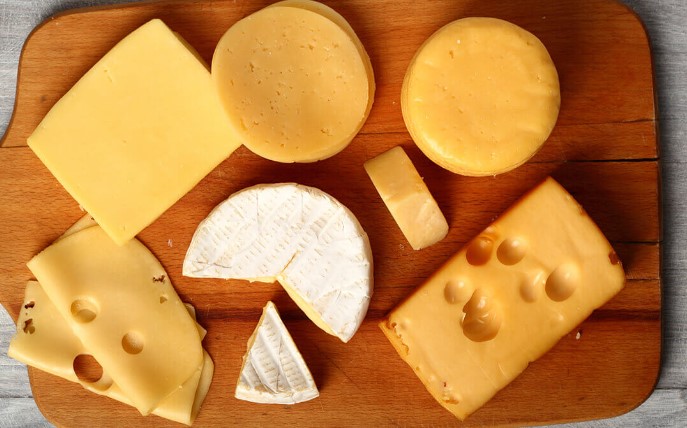Can cats eat cheese? Can cheese kill cats?
Can cats eat cheese? This question arises because cheese is a common food item in many households, and sometimes it’s tempting to share a little snack with your furry friend. While cheese may seem like a harmless treat, there are important factors to consider before offering it to your cat. In this article, we’ll explore whether cheese is safe for cats, the potential benefits and risks, and tips for feeding cheese to your cat in a healthy way. Follow Cat Memorial Stones !!
Can cats eat cheese? Is Cheese Safe for Cats?

Cheese is not toxic to cats, so technically, cats can eat cheese. However, it’s important to note that just because a food is safe for humans does not necessarily mean it’s healthy or appropriate for your cat. Cheese is a dairy product, and most cats are lactose intolerant. This means their bodies have difficulty digesting lactose, the sugar found in milk and other dairy products like cheese.
Why Cats Are Lactose Intolerant
Most cats, especially adult cats, do not produce enough of the enzyme lactase, which is necessary for breaking down lactose. When cats consume dairy products like cheese, the undigested lactose can cause stomach discomfort, leading to symptoms such as:
- Diarrhea
- Vomiting
- Bloating
- Gassiness
For these reasons, cheese should be offered to cats with caution, and large amounts should be avoided altogether.
Nutritional Aspects of Cheese
Cheese is a high-protein and high-fat food, which might initially seem beneficial for cats since they are obligate carnivores and require a protein-rich diet. However, the protein and fat content in cheese is derived from milk, which is not a natural part of a cat’s diet.
- Protein: Cats need protein primarily from animal meat, not dairy. While cheese contains protein, it does not provide the complete amino acids that cats need.
- Fat: Cats can benefit from healthy fats in moderation, but the fat content in cheese is often too high and can lead to unhealthy weight gain or obesity if fed frequently.
- Sodium: Cheese tends to be high in sodium, which is not ideal for cats. Too much sodium can lead to dehydration, kidney issues, or hypertension in cats.
>>> Click Can cats eat lemongrass?
Can Cats Eat Different Types of Cheese?

If you decide to give your cat a small amount of cheese as an occasional treat, some cheeses are better than others. Here’s a breakdown of different types of cheese and whether they are safe for cats:
- Can cats eat cheddar cheese? Cheddar: Hard cheeses like cheddar have lower lactose levels than soft cheeses, making them somewhat more tolerable for cats. However, cheddar is still high in fat and salt, so it should only be given in very small amounts.
- Cottage Cheese: Cottage cheese is softer and easier to digest than hard cheeses but still contains lactose. Like other cheeses, it should be given sparingly.
- Can cats eat mozzarella cheese? Mozzarella: Soft and stringy, mozzarella is higher in lactose than hard cheeses. It’s not an ideal choice for cats and should be avoided.
- Blue Cheese: Blue cheeses, such as gorgonzola, are dangerous for cats due to the mold content, which can be toxic to them. Avoid feeding blue cheese to your cat entirely.
- Cream Cheese: Cream cheese is high in lactose and fat. While a small lick may not cause harm, it’s better to avoid offering cream cheese to your cat.
Benefits of Feeding Cheese to Cats (In Moderation)
If your cat enjoys the taste of cheese, a very small amount given occasionally as a treat might be okay. Here are some potential benefits of feeding cheese to cats in moderation:
- Appealing Treat: Cheese can be used as a special treat, especially if you’re trying to hide a pill or medication. Its strong flavor may mask the bitterness of some medicines.
- Source of Calcium: Cheese contains calcium, which is important for bone health. However, cats generally get enough calcium from their regular diet, so additional calcium from cheese is not necessary.
Can cheese kill cats? Risks of Feeding Cheese to Cats
The risks of feeding cheese to cats generally outweigh the benefits, especially when it comes to regular consumption. Some of the main risks include:
- Lactose Intolerance: As mentioned earlier, most cats are lactose intolerant, and eating cheese can cause digestive upset.
- Obesity and Weight Gain: Cheese is calorie-dense and high in fat. Feeding too much cheese, especially to indoor cats with lower activity levels, can contribute to obesity.
- Pancreatitis: In some cases, high-fat foods like cheese can trigger pancreatitis, a serious inflammation of the pancreas that can lead to vomiting, abdominal pain, and loss of appetite.
- Kidney Issues: Cats with existing kidney problems should avoid cheese due to its high sodium content, which can worsen kidney function and lead to further complications.
My cat ate cheese what should i do?
If your cat has eaten a small amount of cheese, it is likely safe and you do not need to do anything. However, if your cat has eaten a large amount of cheese or is showing signs of illness, such as vomiting, diarrhea, or lethargy, it is important to contact your veterinarian.
Here are some additional tips:
- Monitor your cat closely for any signs of illness. If your cat is vomiting, has diarrhea, or is lethargic, contact your veterinarian immediately.
- Offer your cat plenty of fresh water. This will help to flush out any toxins from your cat’s system.
- Avoid giving your cat any additional dairy products. Dairy products can worsen the symptoms of lactose intolerance in cats.
- Consider feeding your cat a bland diet. A bland diet can help to soothe your cat’s digestive system.

How to Safely Feed Cheese to Cats
If you still want to give your cat a small piece of cheese, follow these guidelines to ensure it’s done safely:
- Portion Control: Only offer a small piece of cheese as an occasional treat. A portion no larger than the size of a fingernail is recommended.
- Watch for Reactions: After feeding your cat cheese for the first time, monitor them for any signs of digestive upset, such as vomiting or diarrhea.
- Low-Lactose Cheeses: Opt for cheeses with lower lactose content, such as cheddar or Swiss, to minimize the risk of digestive issues.
- Avoid Processed Cheeses: Processed cheeses, like American cheese, often contain additives and high levels of sodium, making them unhealthy for cats.
Healthier Alternatives to Cheese for Cats
There are plenty of healthier treat options that your cat will love and that won’t upset their digestive system. Consider these alternatives:
- Cooked Chicken or Turkey: These are high-protein, natural treats that most cats enjoy without the risks associated with cheese.
- Commercial Cat Treats: Many brands offer specially formulated cat treats that cater to their nutritional needs.
- Catnip or Cat Grass: For a non-food treat, catnip or cat grass can be a fun and safe option to satisfy your cat’s cravings.
Conclusion
In summary, while cats can eat cheese, it’s not the healthiest choice for them due to the risks of lactose intolerance, high fat, and sodium content. Cheese should only be offered as an occasional treat and in very small amounts. Always monitor your cat’s reaction when introducing new foods like cheese and consult your vet if you notice any adverse effects.
>>> Read: Can cats eat leeks? What to Do if Your Cat Eats Leeks?
